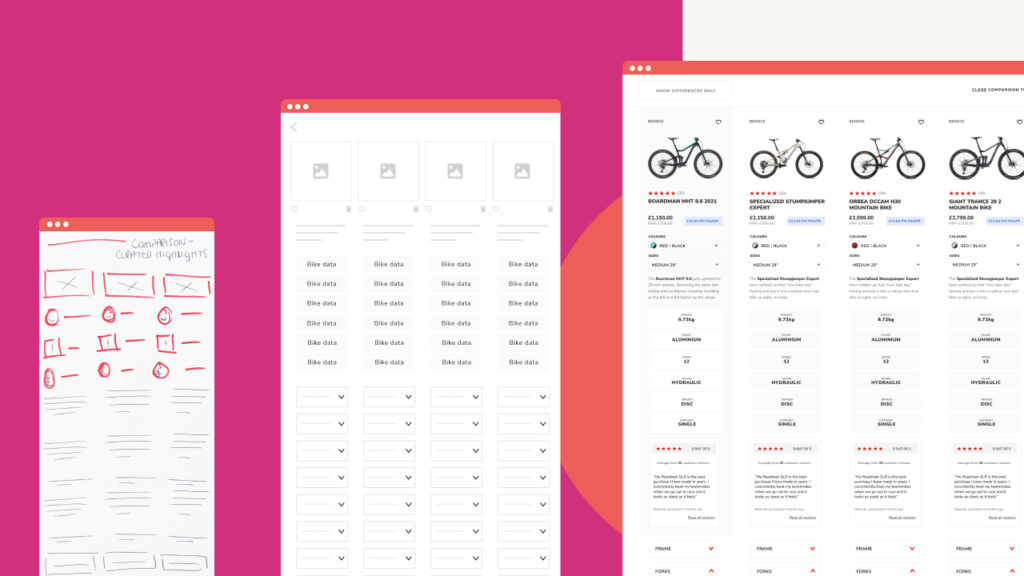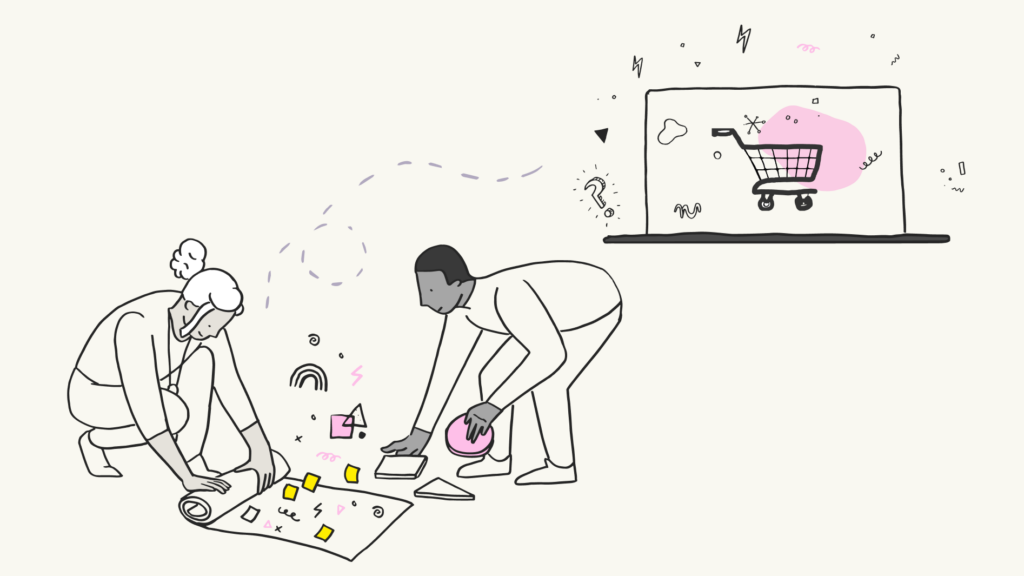At Nomensa, we have a successful graduate program that has been running for some years. Over that time, we have taken in the brightest minds out of university and provided them the training and support needed to become great practitioners. And we’re proud that so many of our seniors and principals started out as grads with us. Tom, for example, joined us back in 2017. He shared some of his experiences in another blog post.
Our recent intake was one of the most competitive ever, with around 120 applications. We know how important it is, especially at the beginning of your career, to understand where we went wrong so we can improve for next time. That’s why we always provide feedback for grads who aren’t successful at interview.
However, in our latest round of applications, it was tougher to do the same for the 100 or so who didn’t make it to interview. So, I wanted to take a moment to reflect on what made the best applications and provide some general guidance for those looking to apply in the future to our – or any – grad scheme.
I haven’t covered basics like typos or proofreading, but here are eight tips for anyone ready to take the first step in their career in becoming a UX professional.
1. Write a covering letter
A lot of our sifting was based around a lack of covering letter. At this stage, with relatively few things on a CV, it’s very difficult to see how the things you’ve done would apply to this role without a covering letter.
Plus, they’re a great opportunity to really personalise your application and demonstrate your enthusiasm for the role. Like most organisations, we also explicitly ask for a covering letter, so if someone hasn’t taken the time to write one, it’s difficult to put them through against people who have.
2. It’s not all about experience
The temptation is to emphasise your experience, but really, at grad level, we’re not looking for lots of experience. That’s the point of it. You’re here to learn and our organisation is full of willing teachers, so what we really need is your enthusiasm.
Rather than try to sell yourself along those lines, think about how you can demonstrate your attitude, your willingness to learn and how you’ve worked in teams. This might be through your UX experience, but the experience itself isn’t going to be the difference.
3. Show enthusiasm
I’ve thought a lot about this one. Is it about being openly keen, saying how much you love UX, bouncing off the walls? I don’t think it is, and enthusiasm can be expressed in many ways. Being an introvert isn’t a barrier to showing enthusiasm. It can be seen in actions – in the books you’ve read, the things you’ve tried to do around the subject and the words you use when you describe your thinking.
I can say all this because I’ve often struggled to demonstrate enthusiasm. I often sound sarcastic (“I’m really excited by this project” etc) but it is possible, and it is important at the grad stage. At Nomensa, we might articulate this as ‘Be human’ which is one of our core values: bring yourself to your work.
4. Prepare questions and engage with ours
Another of our core values is to ‘Be bold’ and this counts for the application stage as well as at interviews. You can’t come to the interview with no questions – that’s one way to demonstrate that you haven’t thought about it much or don’t have that much enthusiasm for the role.
You can also engage before the interview process by adding questions as part of your covering letter. This demonstrates the things you’re thinking about or interested in knowing. Or even send questions after the interview if there’s anything not covered. All of this is built on some understanding of what Nomensa is about: do some desktop research, find out a bit about us and questions will come.
5. Think about teamwork
At Nomensa, we think a lot about collaboration. It’s in all our materials (including the culture book we send to interviewees), so of course we’re going to ask for examples of when you’ve been part of successful teams and the role you like to play.
You will have many examples of this from any work you’ve done, as well as your course. Write them down beforehand and be prepared to talk about them. Oh, and don’t forget to include them in your covering letter.
6. Reflect and work on self-awareness
As I’ve mentioned previously, don’t fret too much about a lack of experience. It’s better to be open and honest about where you think your weaknesses are. If you struggle to express weaknesses at this stage, it becomes difficult for us to see where we might support you and help you grow.
It’s also unrealistic to think we can hide who we are. I particularly value showing that vulnerability, and so if you were to ask me where I think I need to improve I would happily tell you.
7. Think about how you might give back
This role is largely about what you will get from Nomensa, especially in the early years. However, it’s nice when you start to position your view of success as being able to give back to us.
Perhaps in a year or so you’d like to be helping out interviewing the next batch of grads, or you’d like to be adding value in a project team. It’s not an absolute must, but it does demonstrate a level of maturity.
8. Be yourself
We value diversity, and we mean that across various spectrums. It’s not a box ticking exercise. It’s egalitarian and the morally right thing to do, but it also means we create better solutions and can relate better to the users of products and services we’re looking at.
Ready to start your UX career at Nomensa?
We usually take on 2 to 3 grads a year, starting in July. So, if you’re interested in joining us, look out for the announcements on our socials, or feel free to [send a speculative application now.](https://www.nomensa.com/careers/submit-your-cv)
Keep an eye on our socials, including LinkedIn, Twitter and Instagram, for the latest news.
We drive commercial value for our clients by creating experiences that engage and delight the people they touch.
Email us:
hello@nomensa.com
Call us:
+44 (0) 117 929 7333




